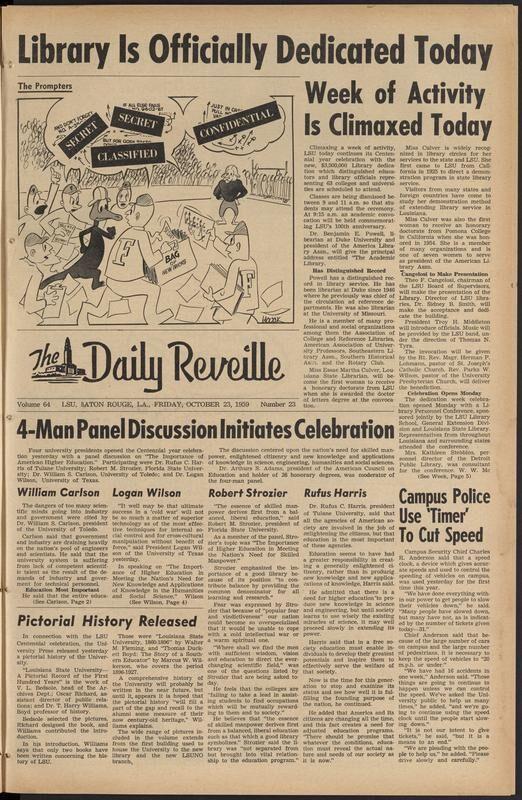At the first Board of Regents meeting of the year, Board member and Commissioner of Higher Education Jim Purcell offered tuition hikes as a solution to curb significant budget cuts.
“There is an intensifying crisis in the state,” said Board of Regents Chairman W. Clint Rasberry Jr.
State general funding to Louisiana’s higher education institutions declined by $625 million from 2008 to 2012, Purcell reported.
The University received $619.27 million in state general funds in 2008, according to Purcell’s report. The state gave significantly less in 2012 — $384.24 million. The LSU System suffered a 38 percent decrease in funding.
Southern University received a 45 percent decrease.
Purcell proposed ways to move higher education forward: stabilize state funding for higher education, allow tuition rates to be market-driven and allow per credit-hour tuition charges.
Market-driven tuition rates would allow the LSU System to determine the appropriate tuition rates, Purcell said. The Board of Regents would set the average based on the Southern Regional Education Board’s average, Purcell said.
University Interim System President and Chancellor William “Bill” Jenkins, who sat in on the meeting, was unsure about raising tuition to SREB averages. Raising the tuition to the average might not be feasible for many of Louisiana’s citizens, Jenkins said.
“You’ve got to look at the environment,” Jenkins said. “There is a limit beyond where enrollment will decrease. You’ve got to be certain where that tipping point is. We’ve got to have citizens coming to our state institutions.”
The Board of Regents would determine the SREB average for each state institution, but the institutions themselves would set their own tuition rates, Purcell said.
Purcell said a per credit-hour tuition-based system would help close the gap between state-generated funding and self-generated funding. Per credit-hour tuition would raise tuition based on the number of hours a student takes.
The current system caps at 12 hours, meaning that students who take 15 or 18 hours do not pay more than a student taking 12 hours, Purcell said.
A credit-based system means the more hours taken, the more tuition paid.
Purcell also spoke about investing in human capital — the individuals, the intellectuals.
Board members also discussed the benefits of privatizing higher education.
“Is a vehicle in place to privatize certain parts of universities — or the whole University — as it was done in hospitals?” Regent William Fenstermaker asked. “It might lead to a higher quality of education, which is our goal. Can we take from private sides — like research — to fund needed areas of higher education?”
While no decisions were made, Rasberry said the goal is to “move forward with answers and without blame.”
“We can’t carry on doing what we’re doing and expect to be successful,” Jenkins said. “LSU will survive, but we may not thrive.”







